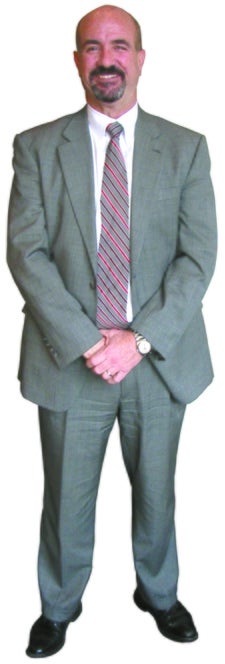Shop Talk: Q&A With Louis Ciavarra, Bowditch & Dewey
 Photo/Christina H. Davis
Louis Ciavarra, Senior Partner, Bowditch & Dewey
Photo/Christina H. Davis
Louis Ciavarra, Senior Partner, Bowditch & Dewey
Ask Louis Ciavarra what he does for a living and he’ll give you a simple answer: “I solve people’s problems,” he says. And he’ll have more time to devote to that effort now that he’s stepped aside as managing partner at Bowditch & Dewey, which has offices in Worcester, Framingham and Boston. While he recently turned over the title of managing partner to James D. Hanrahan, a partner out of the firm’s Framingham office, Ciavarra is still practicing law and will remain a member of the Bowditch & Dewey management committee. Here, he talks about the unique business challenges facing law firms today.
WEB ONLY >> How is Bowditch & Dewey structured?
While Bowditch & Dewey has about 70 lawyers, there are 20 capital partners that own the firm. We elect a management committee of partners, which are by definition equals, but we have a five-member management committee that gets elected to manage the business side. That management committee really needs a CEO for a lot of reasons, and that's the managing partner.
>> What prompted you to step down as managing partner?
Typically it’s about a three-year term. I told the partners last year that Jan. 1 would be my last day. It was time for me to get back to the full-time practice. I’m staying involved with the management of the firm, just in a less prominent role. We talked about it and we elected a new managing partner, Jim Hanrahan. He’s been on the management committee for two terms.
>> What office does Jim Hanrahan work out of?
He’s out of the Framingham office, which was a first for the firm to have a managing partner not located in the Worcester office and that’s fairly significant. I wouldn’t say the decision was made because he’s out of the Framingham office. It was made because he’s Jim. But we are truly a regional law firm now. Worcester continues to be the home base where major operations are located. But at the same time, we are the largest law firm in MetroWest. It’s a huge part of our practice. We have more than 20 lawyers there.
>> What are the business aspects of the law firm that you had to deal with as a managing partner?
The responsibilities of the managing partner can be separated to two major categories. One is the practice of law and the other is all the business stuff that every business and every one of our clients faces. Hiring, firing, investment in technology, investment in real estate... It involves strategic planning — Do you want to expand? Do you want to contract? Do you want to open new geographic areas? It involves benefits, rising health care costs. All of the challenges that your readers face, we face.
WEB ONLY >> Do you think law schools need to do a better job of training lawyers on the business side?
I think the answer to that is no. All the firms of our size and bigger have professional management. I think the place it's heading is frankly less involvement by lawyers in the business management of the practice and more reliance on professional mangers. I think that's smart.
>> How has the firm been able to draw talent out of Boston?
It’s all about finding the right match. When you’re recruiting, what you need to figure out is what’s the right fit between the lawyer and the firm. Lawyers recognize that the work they’re going to be doing, the types of cases and the quality of partners is the same here as any other law firm. But more recently they’ve begun to realize that they’re going to get better training and that’s because here they’re not one of 100 associates. The bigger challenge was always the economic spread between what you could be paid at a large Boston firm and what you would make at a midsize firm such as ours. That number is still different, but it’s become closer because of salary rollbacks at firms in Boston.
>> You say that you solve problems for a living. How do you deal with that? Isn’t that incredibly stressful?
When I started working here, I had the opportunity to learn at the doorstep of Mike Angelini [a partner at the firm]. Mike said to me at a very early stage, “You’re going to have a lot of sleepless nights.” The reason you end up with a lot of sleepless nights is because good lawyers are empathetic. You can’t look at it as an intellectual exercise. But so much of it is personality. It’s my personality that I do take on those clients’ problems.
What’s the toughest management lesson you’ve had to learn over the past four years?
Probably the toughest thing is that you don’t know it all. I think when you’re not sitting in the seat that’s ultimately responsible for the decision, the decisions seem obvious. Part of my answer is the result of the structure of a law firm. As a managing partner you’re not really a CEO. I’ve got 20 partners that are owners of the business equal to me. Part of my responsibility as managing partner was to make sure the strategic plans I wanted to implement had the support of at least 20 other people. Making sure that everybody feels listened to and that they participated in the decision is something that you don’t appreciate until you have to do it.
Watch as Louis Ciavarra discusses what he enjoys most about his job:









0 Comments